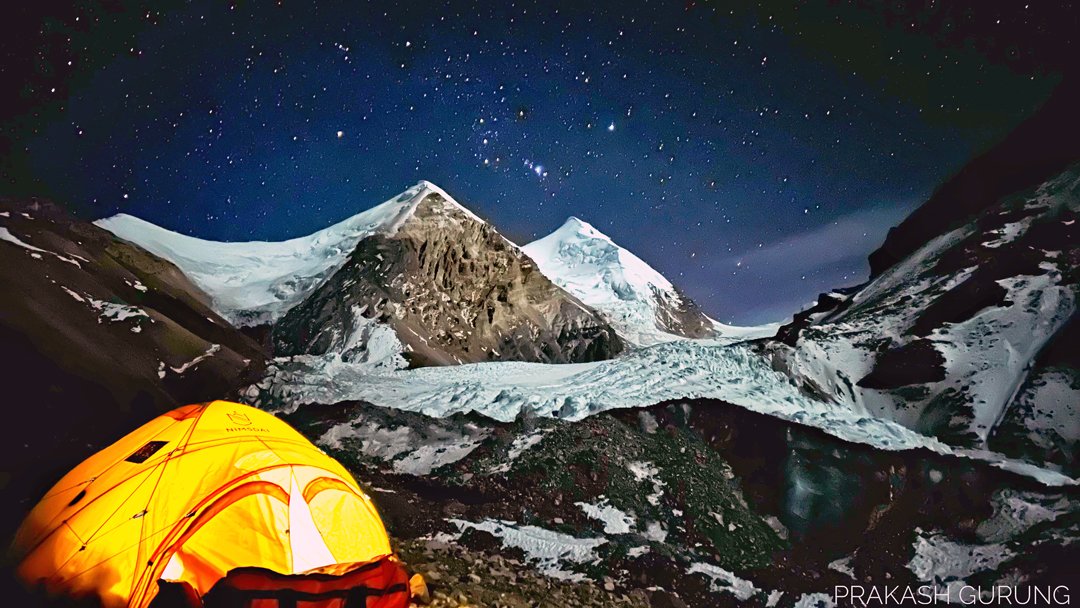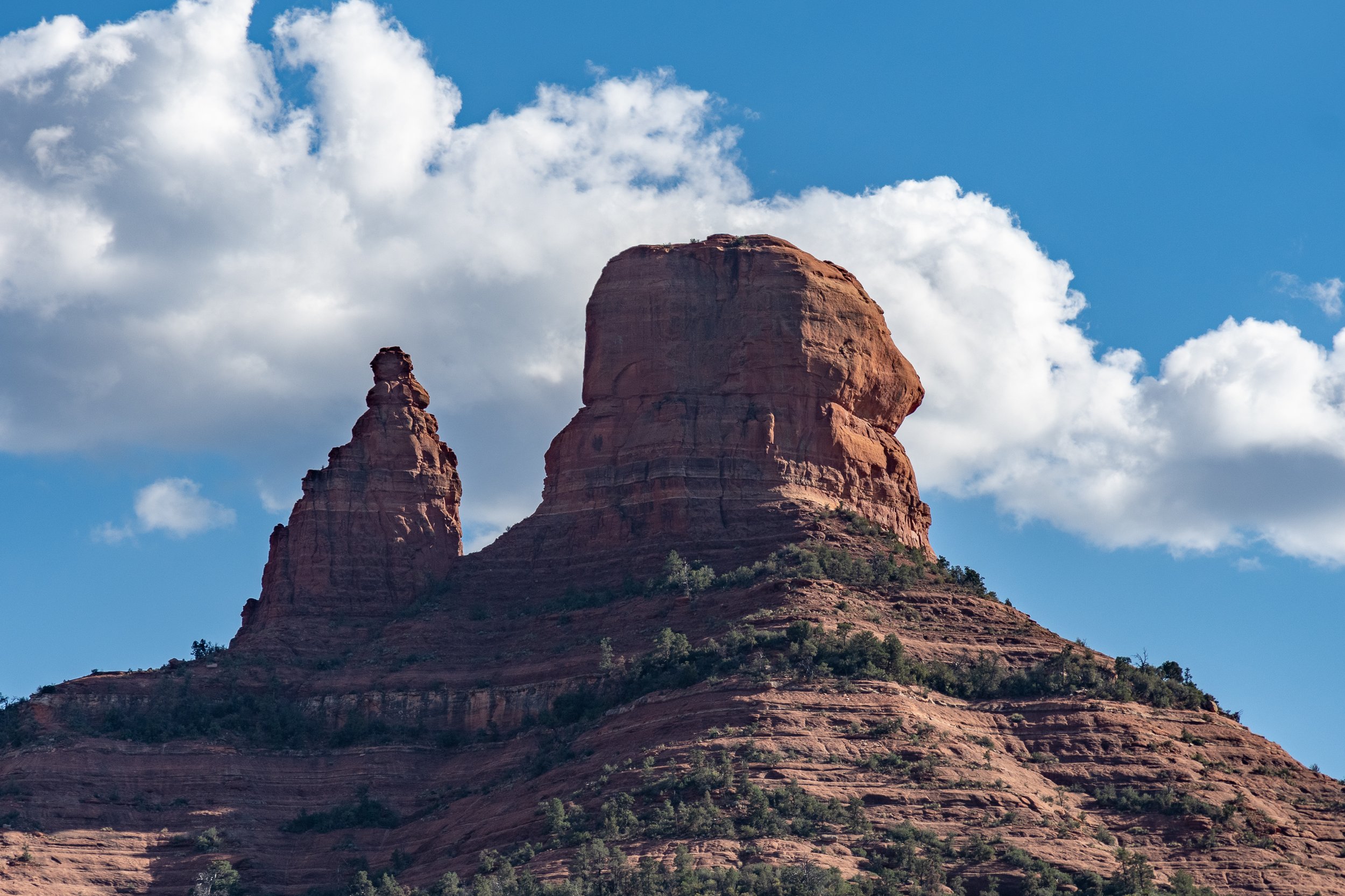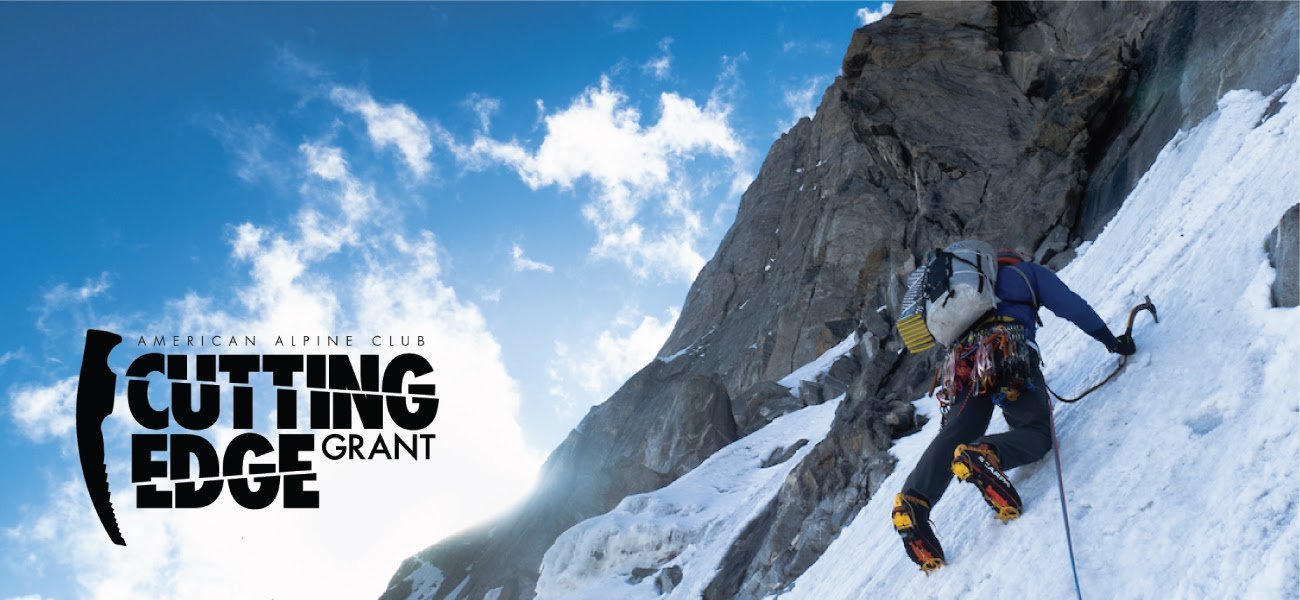AAC Austin Chapter members develop a new wall at Continental Ranch
AAC member Andrew Horton climbing Tomahawk, a 5.11- in the Weir Dam area. PC: AAC Austin Chapter Chair Brian Deitch.
Grassroots: Unearthing the Future of Climbing
By: Sierra McGivney
If you want world-class climbing in Texas, you have to earn it. You’d have to drive down a rugged ten-mile road for an hour with no service while simultaneously opening and closing gates and avoiding ranch animals. Then you’d arrive at the Butt Campground, perched atop a cliff, overlooking the beautiful blue Pecos River that cuts through sweeping limestone cliffs extending for miles.
Climbers must then trek down third-class trails down to respective climbing areas while hauling gear. Watch out for baby goats and prickly cacti. But the flora and fauna aren’t all you have to worry about at the Continental Ranch.
“The limestone against your skin feels like the most abrasive sandpaper that you've ever touched, which means you don't need chalk,” says Emilie Hernandez, one of the new route developers at the ranch.
AAC memeber Matt Langbehn. PC: AAC Austin Chapter Chair Brian Deitch.
Emilie says, if you work with the rock, the rock will work with you. If your moves are haphazard and finicky you’ll bleed. Small huecos, the size of coins, create a wave of ripples in the cliffs. Climbers can either palm the huecos like slopers or sink their fingers into near-perfect handholds.
“The word pristine is what comes to mind,” says Hernandez.
Fewer cams and hands have left their mark at the Ranch than in other areas in Central Texas. In CenTX, shining limestone is a common sight. Polished routes steer locals away from overused crags. A lack of accessible climbing in Texas has worn down cliffsides and left routes sandbagged.
PC: AAC Austin Chapter Chair Brian Deitch.
Continental Ranch is a private ranch on the Pecos River in west Texas, and it just happens to have some of the best climbing in Texas. Every type of climbing you can imagine exists here: slab, delicate face climbing, overhangs and even a bit of crack, off-width, and bouldering.
AAC member Sean Moorehead Belying Andrew Horton. PC: AAC Austin Chapter Chair Brian Deitch.
In the early 2000s, a geologist from the University of Texas was kayaking down the Pecos River studying the different striations in the bluffs at Continental Ranch. The geologist happened to be friends with Jamie McNally, a former Access Fund President and local climber. McNally noticed right away that the 300-foot limestone cliffs contained the potential for climbing. The two approached the previous ranch owners, Marilyn and Howard Hunt, about gaining access to these untouched cliffs.
According to a Rock and Ice article by Jeff Jackson, the ranch was struggling financially due to overgrazing and an infestation of dog cactus, so the Hunts opened up the ranch to climbers in 2004 with a fee of $10 to camp and climb.
Climbers soon dotted the limestone cliffside, putting up routes like Crackalious, a 5.10 sport route, and Crocodile Tears, a slabby 5.11 sport route with pinchers, slopers, and mirco-huecoes.
McNally was the first person who developed a relationship with the Hunts and was good friends with the son of the family, Howard Hunt Jr. (aka Mister). Mister, Jeff Jackson, and Scott Melcer were some of the first developers on the ranch. This continued for about four or five years until the ranch closed to climbers due to a liability standpoint.
AAC member James Faerber teaching participants at the Continental Ranch Round-Up. PC: AAC Austin Chapter Chair Brian Deitch.
In 2017, McNally approached Heather and Miles Gibbs, the current ranch owners and operators of the Continental Ranch Pecos River Expeditions, with a plan to reopen Continental Ranch to climbers. Climbing leaseholders and guide services now have access to the ranch. The Ranch even hosts a climbing festival twice a year, the Continental Ranch Round-Up.
Brian Deitch is a full-time lawyer and a part-time route developer at Continental Ranch. When Deitch isn’t practicing law he spends his weekends in the hot Texan sun drilling bolts into limestone. He arrives late Friday night in Del Rio, works hard Saturday into midday Sunday, until he has to make the trek back to Austin.
AAC member Guy Tracy climbing in the Painted Canyon Sector. PC: AAC Austin Chapter Chair Brian Deitch.
“The second we cross through the gates of the ranch it’s like the world melts away,” says Deitch, the AAC Austin Chapter Chair.
Deitch got involved with the AAC after attending the Red Rocks Rendezvous and connecting with AAC members and volunteers. In 2017 Adam Peter, the former National Volunteer Programs Manager for the AAC, sent out an email looking for members to get involved locally. Deitch responded and started the AAC Austin Chapter.
About a year later the AAC Austin Chapter and the Access Fund joined forces with Outpost Wilderness Adventures to host the Continental Ranch Round-Up.
Over drinks and celebration at an Access Fund happy hour in 2019, Deitch met Hernandez. Hernandez, the founder of the Texas Lady Crushers, was interested in the Ranch Round-Up but was unable to attend the previous year. Deitch mentioned he was “the liaison” for the Continental Ranch Round-Up. Hernandez’s interest was piqued.
“Are you interested in mentoring a climber? I heard you climb trad,” says Hernandez.
The two are now married and route developers at the Ranch.
Deitch and Douglas McDowell, the events chair for the AAC Austin Chapter, teamed up to work with Heather Gibbs on new route development at the ranch. The two walked around the estimated 30,000 acre property showing her possible climbing walls and explaining elements of route development. As time went on, she herself began to point out areas she thought would be good for climbing.
On January 8, 2021, they found a wall along the Pecos River that seemed to feature just about everything: jugs, cracks, crimps, aretes, and slabs. Over the course of eight weekends, Deitch and a select group of climbers took on Heather’s Wall.
AAC member Emilie Hernandez developing Heather’s Wall. PC: AAC Austin Chapter Chair Brian Deitch.
For the entire month of January, Deitch spent every weekend at Continental Ranch. That’s ten hours of driving each weekend.
“It's not somewhere I can just go to after work,” says Deitch.
Deitch fell in love with the process of cleaning stone and developing routes. He financed the entire operation. This includes drills, drill bits, anchors, bolts, and mussey hooks. Both Deitch and McDowell studied and met with mentors throughout the process. They wanted to develop routes correctly and be able to educate others; no one-move wonders, no grid bolting, and consistently graded routes.
“There's just something really badass about having a drill in your hand, hanging on a fixed-line and knowing that this is going to be a route that my friends are going to climb and a legacy that I'm literally leaving until that gear wears out or the rock crumbles,” says Hernandez.
Heather’s wall. PC: AAC Austin Chapter Chair Brian Deitch.
Walk past Piranha, a 5.9 route at Painted Canyon's Bone Yard area for about a quarter-mile and you’ll come face to face with Heather’s Wall. Six new routes were developed over the last year with room for more. Flyin’ Brian, a difficult 5.10+, features tricky face moves that will lead you into a corner, below an overhang, forcing climbers into “a pistol squat from hell” in order to pull the roof. Baby Goat, inspired by all the little goats running around the ranch, is a 5.10- face climb through a crack. My Mija, is a well-protected 5.10, and leads climbers to choose their own adventure by providing three variations along and to the sides of the bolt line. A technical 5.11, Matriarch runs parallel to My Mija. Slim Picken’s is a 5.11 developed by Scott Davis. Finally, at the far right of the wall, there is Bree Jameson’s climb, which she onsighted and self-belayed from the ground up—Learning from Legends, a 5.6.
“It’s the best limestone north of the Rio Grande,” says Deitch.
Hernandez’s and Jameson’s routes are the only two developed by women of color on the ranch. This inspired both climbers to give other women the opportunity to climb and learn about route development. The Texas Lady Crushers had their first retreat on the ranch last March.
“You can be anybody you want to be out there as long as you respect the land, respect the people, and respect the people who came before you,” says Hernandez.
PC: AAC Austin Chapter Chair Brian Deitch
Thanks to Gibbs and her desire to open her mind, Texas climbing is on a new course. Deitch, Hernandez, and other climbers will continue to explore and develop more routes at the ranch. If you get the chance to climb at Continental, make sure to stop and look out at the vast mountainous desert.
“You feel like a real deal climber out there,” says Hernandez.






















